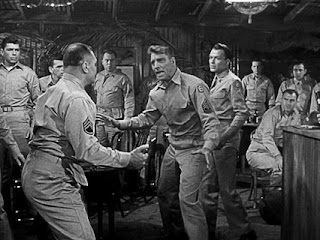In my book No
Neutral Ground (May 3, 2016), the main character exclaims, “This is 1936.
We’re a civilized country. How can they do this?”
How could a civilized country like Germany allow Hitler
and the Nazis to wreak havoc on the world? Life in the Third Reich by Paul Roland
explores reasons why.
A lack of civil courage was as much to blame for Hitler’s
rise as uncritical adoration by his supporters. The Nazis came to power using
lies and dishonest means. They had suffered serious reverses in the 1932
Reichstag elections. If industrialists and bankers had withdrawn their support,
the Nazis may have imploded. Instead, their sustained election campaigns gave
the illusion that they were popular, strong, and well-funded.
Many Germans lacked enthusiasm for Hitler, but hoped for
an end to the economic chaos and violence between rival political parties since
their defeat in World War I. Life wasn’t easy. Many apartment blocks were
unheated. Hot water bottles were taken to bed, and in the morning, the lukewarm
water was used for washing. Communal bathrooms were common, with no toilet
paper. Clothes were washed with a washboard and bristle brush once a month.
Once Hitler persuaded the elderly President Hindenburg
to appoint him chancellor, the Nazis immediately clamped down on universities,
Catholics, and government offices, disbanded trade unions, began indoctrinating
children to turn them against their parents, and supplanting religion with
neo-pagan worship, deifying Hitler. They burned books because they feared
anything that encouraged people to think for themselves and question what was
happening. Ballot papers on the national referendum on reoccupation of the
Rhineland were numbered with invisible ink. Those who voted against
reoccupation were arrested.
Robert Ley, the leader of the Nazi Labour Front, stated,
“Our state … does not let a man go free from the cradle to the grave. We start
our work when the child is three … and do not let them go until they die,
whether they like it or not.”
The Nazis encouraged behavior that would subvert young
people’s traditional religious upbringing, destroy moral sensibilities and
civilized behavior. Physical prowess was valued over intellect. (Where was this
vaunted physical prowess in Hitler, Goering, or Goebbels, three who failed to
appear like Aryans?)
Life in the Third Reich focuses on those
who were children in the 30s and 40s. All emphasized how they could trust no
one with their anti-Nazi sentiments, at the risk of being reported and
arrested. Support for the Nazis ebbed as the Allied bombing intensified. By
then, the German people had lost all their freedom.
Paul Roland reveals the stark contrast between the myth of “One People, One
Fuhrer” perpetuated by Nazi propaganda and the harsh realities of life in a
dictatorship. It challenges the popular view of Nazi Germany as a nation united
behind Hitler.
What would you have done? Would you have behaved any
differently if you had lived in Hitler's Germany?





